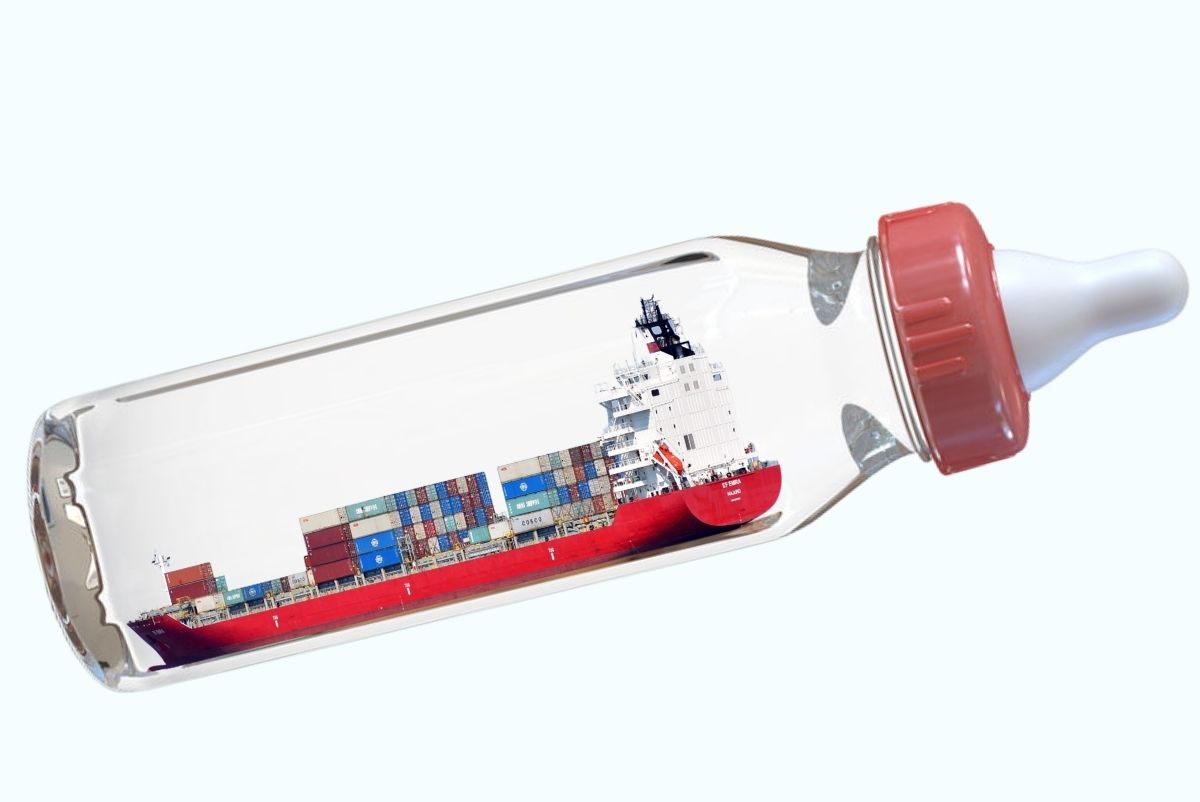Fred’s University Institute for Planned Obsolescence is working on its boldest industry collaboration to date with a partnership between the international baby formula conglomerate, Big Baby, and the Department of Sociology.
The goal: monetize motherhood, then make mothers obsolete.
There was some initial pushback from the Sociology faculty about the contract with Big Baby, based on historic concerns about the role of academia in marketing infant formula in less economically developed countries (LEDCs), specifically targeting the poor.
Formula companies, most notably Nestle, used the lure of “Western culture” to entice mothers to buy expensive baby formula that was advertised as modern and scientific. But baby formula mixed with contaminated water poisoned babies. Even where there was clean water, mothers could not afford the constant expense of formula, their milk had dried up, and babies had no source of food.*
Many babies died.
Big Baby executives reached out to reluctant faculty and pointed out that since the baby formula debacle of the 1970s, there has been a cultural reversal as Western mothers learned that breastfeeding as practiced throughout the developing world was actually much healthier for their babies and themselves than the Western model of baby formula.
If anything there has been a de-Westernization of the West, a blowback of cultural imperialism. As for Nestle, it has moved on to hoarding safe water, driving up the price and leaving communities without the vital natural resource.
Big Baby has reassured the sociologists that it does not have ties to Nestle water, which has changed its name anyway, and does not intend to pursue bogus health claims for baby formula. The proposed ad campaign will embed public health messages about how breastfeeding benefits both babies and mothers. They are even hoping to get some government funding for promoting Breast Is Best and be granted dispensation to include their advertising messages in otherwise prohibited settings like hospitals.
The goal of Big Baby is not to nourish babies, but to liberate women from childcare. The marketing strategy is to research and exploit women’s desire to break from the biological gender constraints that make them the primary caretakers of babies. Big Baby looks to a future when women are not needed for the care of babies. Preliminary studies show that future generations will reject the existing constructs of gender, and Big Baby wants to be part of that.
Big Baby intends to position itself at the vanguard of a revolution where mothers will be entirely freed from the constraints of motherhood and all of their maternal labor is commoditized. With the help of the Department of Sociology, Big Baby hopes to fund studies that tap into and then amplify the growing sentiment that motherhood is a form of gender discrimination and cultural oppression.
Big Baby is just a subsidiary of another multinational corporation about to change its name, and as such, it has a larger mission which is to help ensure that women are able to participate in the labor market without any other demands on their time or limits on their productivity. As an underpaid/undervalued workforce, women are essential to the profitability of not just Big Baby but all Big Industries.
The Department of Anthropology, which has dwindled to two associate professors and three adjuncts, was outraged that they were not consulted on the industry collaboration and had some harsh words for the project. They warned that Big Baby is trying to co-opt progressive Gen Z ideas into a gynophobic misogynistic commercial ideology which in no way represents the views of the upcoming generation/market.
Two Work-Study students who were doing data entry in the Department of Sociology while the Big Baby deal was being put together commented that their biggest concern was not gender but the enormous environmental cost of baby formula, from production to transport and through to the garbage cycle. Plastic baby bottle waste is destroying our oceans, already polluted by the container ships which transport them around the globe.
“In the future science will make it possible for anybody to give birth, regardless of gender, but the devaluation of non-male labor and the destruction of the environment–those things are forever problems,” the Work-Study student explained in a TikTok vlog about her Work-Study job.
“Mother’s are the ultimate no-waste environmentally friendly food package,” explained the other student in an Instagram post that featured a baby bottle with a shipping container inside. “And I don’t mean that as an objectification of women. We are all packages of one kind or another.”
A visiting executive from Big Baby who saw the baby bottle picture later posted on LinkedIn that he was a bit “creeped out” by the sentiment that we are all packages and felt the students should show “more respect for mothers as human beings.”
* “Why Nestle Is One Of The Most Hated Companies In The World,” Mihai Andrei.
A Related Story For You To Read: Work Begins On Opioid Death Memorial Park

